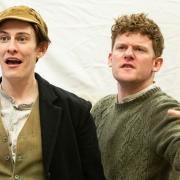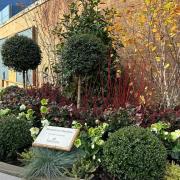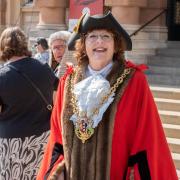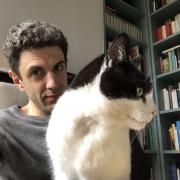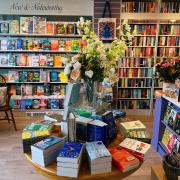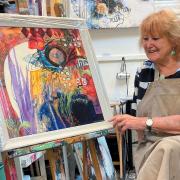Beekeeper Laurie Wiseman has lived in Aldeburgh with his wife since 1991. They moved to Suffolk from London where Laurie was a design building services engineer. At the age of 67, he says he is now the "happiest he has ever been"
Beekeeper Laurie Wiseman has lived in Aldeburgh with his wife since 1991. They moved to Suffolk from London where Laurie was a design building services engineer. At the age of 67, he says he is now the “happiest he has ever been”
How long have you been a beekeeper and what got you started?My interest in bees started many years ago, and when I came to Aldeburgh in 1991 I had the time to take up this hobby. The first thing I did was to join the Leiston and District Bee Keepers’ Association and became an apprentice to an experienced beekeeper for two bee seasons. He impressed upon me that to become a good beekeeper I had to learn to think like a bee. I now have 12 colonies of bees and have been keeping them for 16 years. What fascinates you about bees?You can never stop learning about this ancient craft and the beehive’s lifecycle and I’ve read many books on bees. The one thing I have learnt to my cost is that bees do not read the bee books! What variety do you have?Before the First World War we had the British Black Bee but it was largely wiped out by the Isle of Wight disease in the early part of the last century. Bees were then imported in great numbers from all over Europe from different strains of honeybee, so the bees we have now are a mongrel lot.
They seem to be an endangered species... what is your understanding of the situation?The greatest threat to honey bees is a parasite mite called ‘varroa destructor’. It arrived in Britain in 1992 and at that time we had a ‘magic bullet’ to kill it but over the last two to three years the mite has become resistant to this treatment. This resistance, along with recent bad summers, has caused colony losses nationally of 30% and has caught many beekeepers out. I had high losses over the winters of 2006 and 2007 but have not lost any colonies over this past winter. There are recent reports of some high losses in Suffolk so it is a mixed picture and not yet completely clear. Alternative organic treatments became available to treat for varroa last autumn and it is hoped these will keep the mites at manageable levels. It is critical for beekeepers to keep the population of varroa mite at very low levels so management skills are becoming more and more important. The mite sucks the blood of larvae and adult bees weakening their immune system and they become susceptible to viruses and other bee diseases. The British Beekeepers’ Association and many others interested in bees, notably the Women’s Institute nationally have been arguing for more research funding into bee health over the past two years and surprisingly the government has now come up with �10 million to this end. This is absolutely splendid news. Aren’t superbees being introduced to hives to counteract the parasite being carried by some bees?There are no super bees but there is some research into breeding ‘hygienic’ bees. These bees have the trait of removing any larvae weakened by the varroa mite and throwing them from the hive. But for this to have any real effect will take years.
How much honey do you collect each week or month?I take two crops of honey from my hives. The first in early June is a light, subtle flavoured blossom honey and the second in early August is a darker more aromatic summer honey. The size of the crop is dependent on the weather, the availability of flowering plants and the beekeeper’s skills. A colony can produce anything from 30lbs to 60lbs of honey.
Have you ever been badly stung?No, not badly stung, it’s important to develop a calm manner when working with the bees, to use the smoker wisely and ensure the face mask is zipped up. How many people are in the Suffolk Beekeepers Association and what does the association do? The Suffolk Beekeepers’ Association has about 300 members divided into five geographic area branches. Each branch holds meetings, attends local shows throughout the year and has teaching apiaries to help new beekeepers. We are a merry band of brothers and sisters. Our showcase event is the Suffolk Show, at the kind invitation of the Suffolk Agricultural Society each year. Do you have any favourite places to visit in Suffolk and what do you like about the county?I do but I’ll keep that a secret. What I like best about Suffolk are its many beautiful and unspoilt areas. Favourite book and why?My favourite book is Bees at the Bottom of your Garden by Alan Campian and illustrated by Gay Hodgson because it led me into bee keeping and all that beekeeping has given me. What’s the best way to get started if you are interested in beekeeping?Beekeeping is not a romantic pastime. It is hard, heavy work and expensive to set up. If you think you would like to keep bees contact your local beekeeping branch (www.suffolkbeekeepers.co.uk) and they will be more than happy to invite you to their apiary so you can get ‘hands on’ experience. You can then decide if it really is for you and there won’t be any initial expense.





